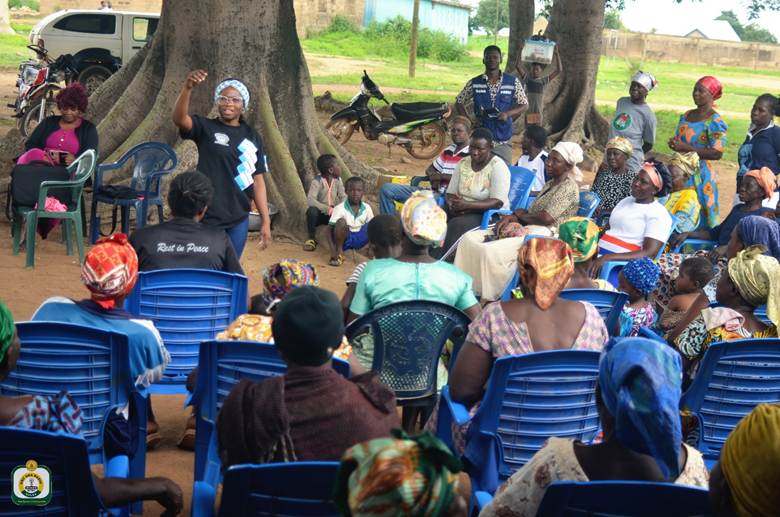Paragraph 1: The Healthcare Gap and WOM’s Intervention
Access to specialized medical care remains a significant challenge in Ghana, particularly in remote and underserved areas. The uneven distribution of healthcare professionals and resources often leaves vulnerable populations with limited or no access to essential medical services. Recognizing this pressing need, the Widows and Orphans Movement (WOM), in collaboration with the KGL Foundation, has stepped in to bridge the healthcare gap. Their collaborative efforts have brought vital medical services to the residents of Zuarungu Zono in the Upper East Region of Ghana through a series of community health screening exercises. This initiative aims to address the immediate healthcare needs of the community while also promoting early detection and prevention of diseases.
Paragraph 2: Addressing the Scarcity of ENT Specialists
The scarcity of specialized medical professionals, such as Ear, Nose, and Throat (ENT) surgeons, is a particularly acute problem in Ghana. Dr. Eunice Rabiatu Abdulai, an ENT surgeon with the Ghana Health Service Headquarters in Accra, highlighted the severe shortage of ENT specialists in the country. With only six ENT surgeons serving the entire nation, and most concentrated in urban centers like Accra and Ashanti regions, vast swathes of the population are left without access to vital ENT care. WOM’s initiative directly addresses this critical gap by bringing specialists like Dr. Abdulai and her team to underserved communities, providing crucial medical services that would otherwise be inaccessible due to geographical and financial barriers.
Paragraph 3: Comprehensive Healthcare Services Reaching the Vulnerable
WOM’s health outreach in Zuarungu Zono went beyond specialized ENT care, offering a comprehensive array of medical services designed to address the diverse health needs of the community. These included eye examinations, malaria testing, blood pressure monitoring, and screenings for infectious diseases such as Hepatitis B and typhoid. This holistic approach reflects WOM’s commitment to providing integrated healthcare solutions that address both immediate concerns and long-term well-being. By offering a range of screenings, WOM aims to detect illnesses early, preventing them from progressing to more severe stages and reducing the overall disease burden in the community.
Paragraph 4: Empowering Widows and Promoting Mental Well-being
The health screening initiative is part of a broader mission embraced by WOM, which focuses on supporting widows, young female entrepreneurs, and fostering mental health well-being within the community. Ms. Elizabeth Anafo, Head of Programs at WOM, emphasized the organization’s commitment to these vulnerable groups. By providing access to essential healthcare services and promoting mental well-being, WOM aims to empower these individuals and enhance their overall quality of life. The health screenings are designed to encourage proactive healthcare seeking behavior and reduce the stigma associated with mental health issues.
Paragraph 5: Removing Financial Barriers and Expressing Gratitude
A key aspect of WOM’s initiative is the removal of financial barriers that often prevent individuals from accessing healthcare. All consultations, tests, and even routine procedures like ear cleaning were offered free of charge to the community members. This alleviated the financial burden that often deters individuals, especially those from low-income backgrounds, from seeking timely medical attention. Participants expressed their profound gratitude for the free services, acknowledging the significant positive impact on their health and well-being. The testimonies of beneficiaries like Samari Esther highlight the transformative power of accessible and affordable healthcare.
Paragraph 6: The Need for Continued Support and Partnership
While WOM’s efforts have provided invaluable free consultations, screenings, and referrals, the organization recognizes the need for ongoing support to fully address the community’s healthcare needs. Ms. Anafo appealed for further partnerships to assist with the cost of medications, follow-up treatments, and potential hospital referrals arising from the screenings. Securing sustainable funding for medications and treatment ensures that the initial interventions translate into long-term health improvements for the community. The initiative serves as a compelling example of how targeted partnerships can dramatically improve healthcare access and deliver both immediate relief and lasting benefits to underserved communities, emphasizing the importance of collaborative efforts in strengthening healthcare systems.














